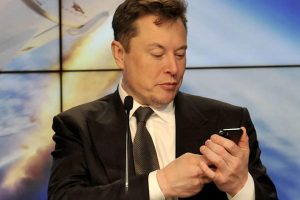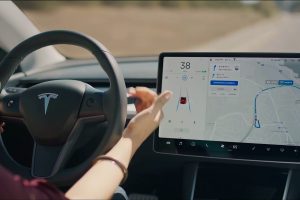Key Points
- ⚙️ Tesla’s innovations and success in the automotive industry have influenced the ongoing UAW strike.
- 🚗 The emergence of electric cars with fewer parts and more automation poses challenges for traditional auto workers and is a key aspect of the strike.
- 💰 The strike is not just about pay and benefits; it’s also about equity and the impact of electric vehicles on the industry.
- 💡 Tesla’s disruptive influence has prompted veteran automakers to compete aggressively in the electric car sector.
- 💸 The UAW’s challenge is to negotiate in an industry where companies like Tesla are pushing for cost savings to stay competitive in the electric car era.
Detroit’s Big Three is in chaos. An ongoing UAW strike does not seem to be ending anytime soon, and the union’s leader, Shawn Fain, is proving resolute in the group’s demands. Interestingly enough, one of the apparent reasons behind the UAW’s historic strike is a company that is not even part of the protest — Tesla.
It would not be an exaggeration to state that Tesla and its rapid rise toward the top of the list of the world’s most valuable carmakers set the UAW’s ongoing strike in motion. Tesla fought through the odds and came near death several times over the years, but its innovations and the runaway success of its vehicles like the Model 3 sedan and Model Y crossover have turned the automotive industry on its head.
One of these innovations is the use of gigacastings, a technique that is now finding adoption among a growing number of veteran automakers. Tesla’s Silicon Valley-style approach to its vehicles has also ushered in an age of cars that are capable of being updated over the air. As noted in a WIRED report, the auto sector’s wishes to compete with Tesla in the growing EV sector has resulted in companies, such as the Detroit Big Three, restructuring their operations.
For unions like the UAW, the emergence of electric cars, which are produced with fewer parts and more automation, is a risky scenario for traditional auto workers. Mark Barrott, an automotive analyst at the Michigan-based consultancy Plante Moran, noted that the UAW strike today is not just about pay and benefits; it is also about the electric vehicle sector. “This strike is about electrification,” he said.
Fain, for his part, has noted that auto workers deserve their fair share even as the age of electric vehicles comes. “Workers deserve their share of equity in this economy,” the UAW president said.
Tesla is not perfect, and its CEO, Elon Musk, has developed a reputation for perenially missing his self-imposed deadlines. This could be seen in the EV maker’s robotaxi program, which is notably delayed. Despite this, Marick Masters, who studies labor and workplace issues at Wayne State University’s School of Business, noted that Tesla has become disruptive enough to leave veteran automakers like Ford, GM, and Stellantis, in a “quest for capital.”
Thus, while the Detroit Big Three made $250 billion in profits in the past decade, the rapid growth of companies like Tesla may be pushing veteran automakers to save every cent possible to make sure they can stay afloat in the age of electric cars. And here, ultimately, lies the UAW’s problem. “They have little money to concede for union demands,” Masters said.
Fain, for his part, is not buying it. “Competition is a code word for race to the bottom, and I’m not concerned about Elon Musk building more rocket ships so he can fly into outer space and stuff,” he said.





